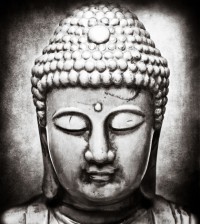- 5 Tips To Finding Peace Within Yourself
- The Do’s and Don’ts of Learning How to Accept Yourself
- How to Find Your Inner Peace and Transform Your Life
- 8 Benefits of Having an Open Mind and How to Get One
- Learn How To Be A Happier Person
- What Is The Meaning Of Life?
- Laws of Abundance – The Riches of Love and Joy
- How to Be Laid Back By Following These 9 Simple Strategies
- The meaning of confucius’ golden rule – 4 practical ways of living it
- 3 methods of unleashing the power of contentment in your life
What is Zen Buddhism? Seven Questions Answered

1. Where Did Buddhism Start?
The Buddhist ideology was founded by Siddhartha Gautama in India in around the 5th or 6th century BC. As beliefs spread from India, different cultures and countries interpreted ideas differently, sometimes weaving them in with existing belief systems, to create different interpretations and practices.
2. Is Zen the Same as Buddhism?
There are many different Buddhist sects and movements, branching from three main groups of Theravada, Mahayana and Vajrayana, although Mahayana and Vajrayana were once considered as part of the same group.
The Theravada school is considered the most orthodox school of the Buddhist faith and different sub-schools grew in South Asian countries, including Thailand, Burma, Sri Lanka, and Bangladesh. Within the Mahayana school, subsets include Tibetan Buddhism, the Pure Land sect, Zen, Ch’an, and Nichiren. The Vajrayana school is often associated with the practice of tantra, arising from the tantric teachings. It is also closely linked to the practice of yoga. Sub-schools include Mikkyo and Niyingma, and Vajrayana is prevalent within countries near the Himalaya Mountains, including Nepal, Bhutan, Tibet and Mongolia.
Zen is therefore one of many branches of Buddhism, within the Mahayana school of beliefs.
There are similarities between each branch of Buddhism regarding the basic fundamental ideas. Each branch, for example, follows the Four Noble Truths and the Noble Eightfold Path.
3. Where Did Zen Start?
Zen Buddhism originated in China about 15 centuries ago. It is less austere and strict than other form of Buddhism, and took influences from Taoism as well as Buddhist beliefs. It also takes a more simple approach than other branches.
4. Do All Zen Buddhists Take the Same Approach?
Within Zen Buddhism, there are further different sub-branches, each one following slightly different practices.
5. What are Key Common Beliefs Within Zen Buddhism?
In Buddhism, there is no ego, self, or unending soul. All people are part of a wider universal system. The true meaning of life does not relate to the individual, but to everything all around.
In Zen, enlightenment is not obtained by following written words, but comes from within. Zen does not rely on written scriptures, but rather examines the nature of the self. All people have the possibility to discover the truths if they search and question inside. Knowledge is found from within, as inside are the true links to the greater forces of which all people are a part of. Zen emphasizes following the path in search of enlightenment as opposed to purely study of the texts.
Zen is traditionally taught by a Zen teacher to a student. The student should be guided and lead by the teacher, whilst also learning intuitively from within.
In Zen, one must live in the present moment, and release any past attachments as well as letting go of any ideas about the future. The present moment is the main focus in Zen.
Instinct and intuition are highly rated within Zen Buddhism. Zazen is used to develop these skills and raise awareness.
6. What is Zazen?
To enable self-study and understanding, a key element in Zen is the practice of sitting zazen. Zazen is a form of meditation, through which practitioners try to escape rational thoughts and the logic of society to find the deeper truths of life. It also aims to cleanse the mind and return to right thinking and pure beliefs.
In zazen, no tools are used to assist with achieving a meditative state. Rather, practitioners focus on their breathing. It is also performed in a traditional seated manner.
7. Is it Easy to Be a Zen Buddhist?
Zen requires true dedication to living a particular lifestyle. It is a way of life as well as a belief system. There are aspects though that can be incorporated into everyday life to help achieve greater balance in life. People will feel more centered, calmer and more content, with stronger feelings of oneness with the world.












































You must be logged in to post a comment Login